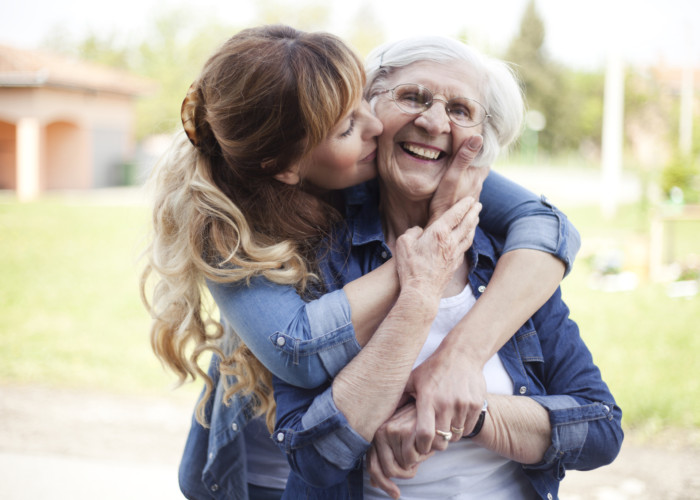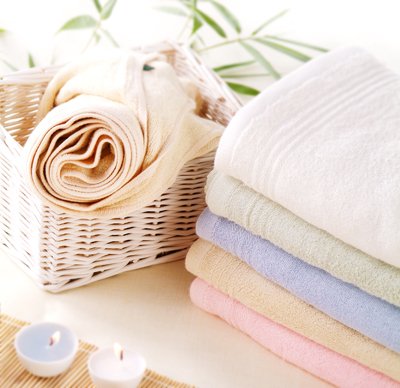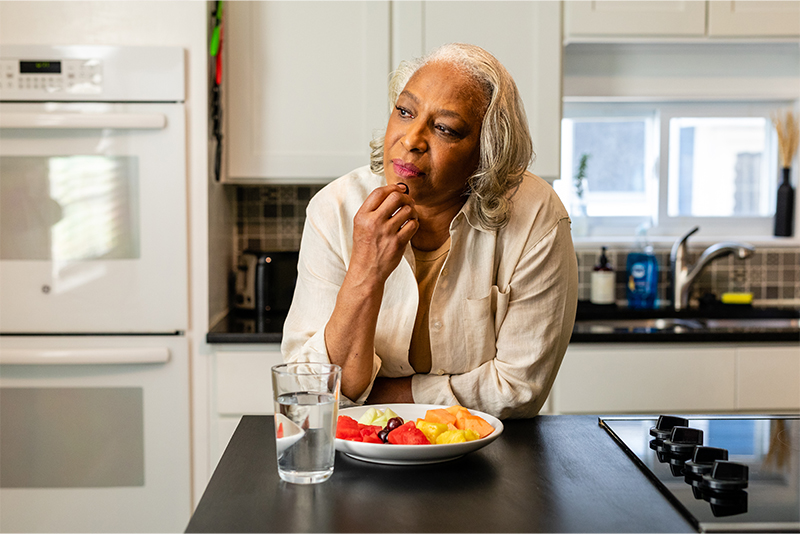Family Caregiving
3 Crucial Steps to Ensure Medication Adherence in Seniors
Are your elderly loved ones currently taking prescribed medications? Are you certain they’re taking them exactly as prescribed? Research shows that the typical senior is taking a multitude of prescription meds – as many as 15 – 18 of them each and every day. And, as many as 55% of those prescription medications are not being taken correctly for a variety of reasons, with serious repercussions. Knowing as much as possible about your own prescriptions and those your older loved ones are taking can help eliminate the potential for dangerous medication mishaps and allow for the optimum benefits of the medications.
Below are several tips to help ensure proper medication adherence.
Get the answers you need. Don’t be afraid to ask the health care provider and/or pharmacist any and all questions you may have about the prescription. Ensure you know the following:
The … Read More »
Medication Management Strategies You Can Implement Today to Keep Seniors Safe
All of us recognize that medications can save lives, but most of us have heard frightening stories about patients who have received incorrect medication – either as a consequence of an issue with the physician or pharmacy. What many people don’t consider is that there is a concealed hazard even when we get the correct medication — the risk of non-adherence.
Similar to driving down the wrong side of the road, incorrect medication management is dangerous. In fact, it is more so — as many as 125,000 people die every year due to prescription medication non-adherence, double the number who die in auto accidents. Although many people might think they are following the rules when it comes to their medications, medication adherence mistakes arise frequently. These mistakes include:
Failure to fill or refill a prescribed drug
Missing one or multiple dosages
Taking the wrong … Read More »
Senior Medication Management Made Easy!
There are an astounding 10,000+ prescription drugs available in America, and nearly a third of adults take at least five of these drugs per day. If you happen to be a care provider for an aging loved one, the complexity of dealing with the prescriptions, interactions and doses can be challenging. In fact, research has revealed that 55% of prescription meds are not being taken accurately for a wide variety of reasons, and the outcomes can be severe.
Keep dangerous senior medication mistakes to a minimum and receive the ideal benefits of the medication by following these tips to help manage medications effectively.
Be in the Know Right from the Beginning. Don’t be afraid of asking the medical practitioner and/or pharmacist questions about the drug. Be sure to know these particulars:
The name of the prescription
What the drug is prescribed for
How, when and … Read More »
Preventing Back Injuries: 10 Tips All Caregivers Should Follow
If you’re providing care for an elderly loved one at home, it’s more than likely that you’ll find yourself in situations where you need to lift, move or transfer him or her – which, if not performed correctly, can place you in danger of hurting either yourself or your senior loved one. Injuries occur most frequently when caregivers:
Have not learned proper lifting and transferring techniques
Do not recognize when they’ve reached their physical limitations
Are not equipped for the physical strain of transferring and lifting
Desire to “manage it themselves” rather than asking for help
Since back injuries are especially prevalent as a result of incorrect lifting techniques, preventing back injuries by learning proper lifting protocol is crucial. Hired Hands Homecare of California would like to share some of the top guidelines to help minimize risk of back injury for family caregivers:
Only lift what … Read More »
Overcoming Bathing Care Battles with a SMILE
Take a moment to close your eyes and picture yourself like this: You’ve spent most of your life taking care of and assisting others – as a mother or father, in your career, through volunteering in your community, and as a grandparent. After all those years of living independently and being in control of your life’s decisions, you’ve suddenly aged to the point that now you are the one in need of assistance with bathing and other care tasks. Imagine the sense of loss, vulnerability, and fear.
If you’re taking care of a senior loved one, it can help to put yourself in his or her shoes when facing challenges related to helping the person with personal care tasks. The struggles your older loved one is feeling are real, and a little empathy and patience can go a long way towards … Read More »
Keeping Bathroom Safety a Priority in Honor of National Bath Safety Month
How could something that’s so comforting and soothing, like a nice, warm bath, be one of the biggest dangers to older adults? The truth is, combining smooth surfaces, slippery soap and hot water create the perfect storm for a fall danger – one of the most severe risks to aging adults.
January is designated as National Bath Safety Month, and it’s a great chance for both education and assessment to ensure the utmost bathroom safety for your senior loved ones.
The Consumer Product Safety Commission reports that about 370 people of all ages suffer bathtub or shower-related injuries each day in the United States. Because most falls in the house take place in the bathroom, AARP recommends taking the following precautions:
Install grab bars for the toilet, shower, and bathtub
Install non-skid tile or use non-skid bath mats
Set the temperature of the home’s hot … Read More »
How to Turn Bathtime Personal Care Battles into Bliss
What feels finer than sinking into a warm, relaxing bath at the conclusion of a long, busy day? While most of us relish the luxurious comfort that bathtime brings, for seniors, especially those struggling with the challenges of dementia or Alzheimer’s disease, it’s certainly not blissful.
For many different reasons, such as memory issues, feelings of vulnerability, or physical distress from the pressure or temperature of the water, helping a senior with the personal care tasks of bathing can feel a lot more like entering a battleground.
Hired Hands Homecare of California wants to help restore the joy of bathtime for both the senior and his or her caregiver with these ideas:
Ensure safety. Keeping the bath area free from hazards is critical. Make certain that:
Grab bars and mats that are slip-resistant are strategically placed in and around the tub
The water temperature is … Read More »
When Care Roles Are Reversed: What You Need to Know to Provide a Parent Care
Mom and Dad have always been there, from your first breath to your first step to your first date, and have remained your biggest cheerleaders well into adulthood. But lately, there’s been a subtle shift in the relationship, as they begin to have more needs themselves due to the effects of aging. Of course you want to be there for them; and you’re far from alone.
National studies report that a little over one out of every four households (29 percent) is involved in providing care for a chronically ill, disabled or aged family member or friend. Since the population of people over 65 years is expected to increase at a 2.3 percent rate, the need for parent care solutions increases each year.
Providing home care for a parent, as fulfilling as it certainly can be, can result in a major upheaval … Read More »
Tips for Family Caregivers to Overcome Dementia-Related Personal Care Battles
Assisting a senior you love with personal care needs – tasks like taking a bath, getting dressed, and helping with toilet needs – can be uncomfortable for both the senior and yourself. It requires the senior to set modesty aside and allow herself to be vulnerable. And when Alzheimer’s disease or another form of dementia is added to the mix, the senior’s feelings of distress may become overwhelming, resulting in an outburst.
The exact trigger behind these outbursts can vary from one person to another, but some of the more common reasons are:
Loss of control. A person’s sense of independence can feel as though it’s slipping away in a number of areas for older adults, and trying to remain in control over the most basic functions becomes even more important.
What can help: Help the senior to feel as much in control … Read More »















